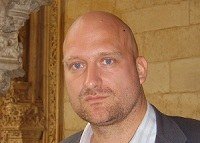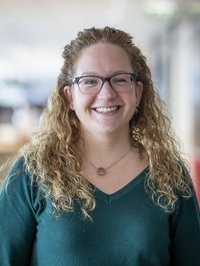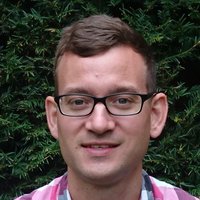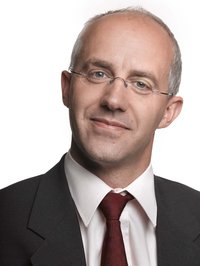Mark Abspoel (CWI)
Improving HIV treatment choice with multi-party computation
Treatment of a patient with HIV highly depends on the particular genotype (mutations) of the virus, but data on the effectiveness of treatments is limited due to privacy concerns. We use multi-party computation (MPC) to provide clinicians with insight on treatment data for other patients with a similar viral genotype, while preserving the privacy of both patient records and clinicians' decisions.
bio:
Mark Abspoel is a PhD student at CWI and the Mathematical Institute at Leiden University since January 2017, under the supervision of Ronald Cramer. His research focuses on secure multiparty computation (MPC), both its theoretical foundations and applications in secure algorithmics. Among others, Mark has published several articles that broaden the scope of MPC from evaluating circuits over fields to more general commutative rings.
Ronald Cramer (CWI)
In the introduction, Ronald and Lisa will give a brief high-level introduction to principles and techniques of secure multi-party computation suited for a general audience.
bio:
Ronald Cramer leads the CWI Cryptology Group and he is full professor at the Mathematical Institute, Leiden University (both since 2004). His research expertise is in cryptology, particularly, mathematical cryptology at-large, public-key cryptography, secure multiparty computation, and cryptographic protocol theory. Since 2008, he is a visiting professor at Division of Mathematical Sciences at NTU in Singapore.
Martine van de Gaar (Linksight)
Linksight (TNO spin-off) provides a software platform for privacy-friendly, decentralized data analysis, based on secure multi-party computation (MPC) and blockchain technology. By using cryptographic techniques, parties can discover and monitor statistical connections as if they had access to each other's data, without actually sharing or retrieving sensitive data - neither with each other nor with Linksight. The Linksight platform enables automated analysis of healthcare data by various parties to measure effective healthcare applications, fully in line with the AVG/GDPR. However, this technology can also be used more broadly, for example in the government market, financial services, or as a tool for consultancy organizations.
bio:
Co-founder Linksight, more than 15 experience in IT as a (project) manager with a focus on data science and decentralized methods.
Marcel Keller (CSIRO's Data61)
MP-SPDZ - A versatile framework for multi-party computation
Marcel will present the core design choices of MP-SPDZ and their application to machine learning.
bio:
Marcel Keller is a senior research scientist with CSIRO's Data61 in Australia. After completing his PhD with Ivan Damgård at Aarhus University, he spent a few years at the University of Bristol under the supervision of Nigel Smart. There he started working an implementation of multi-party computation that eventually would form the basis of MP-SPDZ, a framework that covers more than 30 MPC protocols in a variety of security models.
Lisa Kohl (CWI)
In the introduction, Ronald and Lisa will give a brief high-level introduction to principles and techniques of secure multi-party computation suited for a general audience.
bio:
Lisa Kohl is a researcher in the CWI Cryptology group. She received her PhD from Karlsruhe Institute of Technology. Before coming to CWI, she worked as a postdoctoral researcher at the Technion.
Thijs Veugen (TNO/CWI)
An overview of present and future MPC applications
Thijs will give an overview of current applications of secure multi-party computation (MPC), and sketch the broad potential of this beautiful technology.
bio:
Thijs Veugen is senior scientist at TNO, and its leading scientist on cryptography. He is also working one day a week as senior researcher in the cryptology group of CWI. Before joining CWI, he held a similar position as part-time senior researcher on applied crypto at Delft University of Technology.
